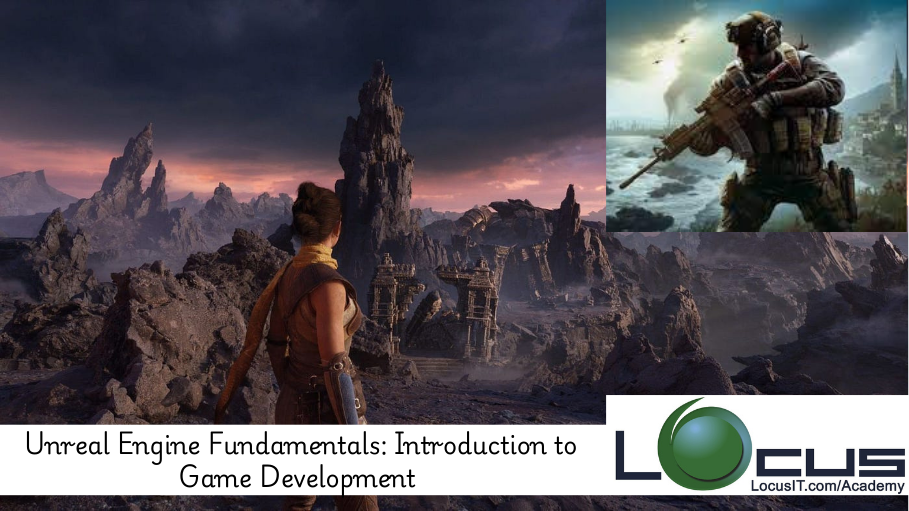Description
Introduction
Unreal Engine is a powerful and versatile game engine that allows developers to create stunning, high-performance games for various platforms, including PC, consoles, and mobile devices. This course offers a comprehensive introduction to Unreal Engine, providing a strong foundation in its features, tools, and workflows. Whether you’re new to game development or transitioning from another engine, this training will guide you through the essential concepts to start building your own games.
Prerequisites
- Basic computer skills.
- Familiarity with 3D modeling or programming (optional but helpful).
- A computer capable of running Unreal Engine.
- Unreal Engine installed (latest version recommended).
Table of Contents
- Getting Started with Unreal Engine
1.1 Introduction to Unreal Engine.
1.2 Downloading and installing Unreal Engine.
1.3 Navigating the Unreal Engine interface.
1.4 Setting up your first project. - Understanding Game Development Basics
2.1 Core concepts of game development.
2.2 Game genres and mechanics overview.
2.3 Understanding game engines and their roles. - Creating and Managing Game Worlds
3.1 Building your first level.
3.2 Using the landscape editor.
3.3 Working with materials and textures.
3.4 Adding lighting and environmental effects. - Blueprint Visual Scripting
4.1 Introduction to Blueprints.(Ref: Mastering Unreal Engine: Advanced Techniques for Game Designers)
4.2 Creating interactive elements with Blueprints.
4.3 Managing events and triggers.
4.4 Debugging and optimizing Blueprints. - Working with 3D Assets of Unreal Engine Fundamentals
5.1 Importing 3D models.
5.2 Setting up animations.
5.3 Managing asset libraries.
5.4 Optimizing assets for performance. - Implementing Gameplay Mechanics
6.1 Designing player controls.
6.2 Setting up character movement.
6.3 Adding NPCs and AI behavior.
6.4 Configuring game objectives and scoring. - Visual Effects and Audio
7.1 Adding particle effects and simulations.
7.2 Working with Unreal Engine’s Niagara system.
7.3 Importing and using audio assets.
7.4 Syncing audio to game events. - Packaging and Deploying Your Game
8.1 Preparing your project for deployment.
8.2 Configuring platform-specific settings.
8.3 Testing your game on various platforms.
8.4 Publishing your game to the marketplace. - Advanced Topics (Optional)
9.1 Introduction to C++ scripting in Unreal Engine.
9.2 Optimizing game performance.
9.3 Working with multiplayer and networking.
9.4 Exploring Unreal Engine plugins and tools. - Best Practices in Game Development of Unreal Engine Fundamentals
10.1 Managing project files and organization.
10.2 Iterative design and prototyping.
10.3 Collaborating with team members.
10.4 Learning from industry case studies.
Conclusion
This course equips you with the fundamental skills required to start your game development journey with Unreal Engine. By mastering these tools and techniques, you’ll be ready to bring your creative ideas to life and take your first steps into the dynamic world of game development. Keep exploring and experimenting to refine your skills further.







Reviews
There are no reviews yet.